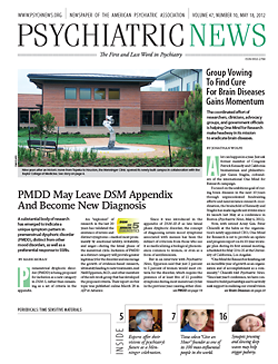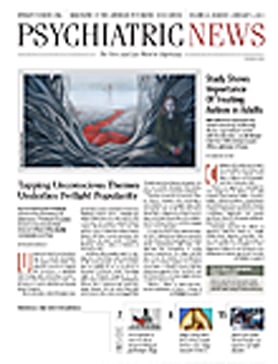Development of psychosis during adolescence is associated with progressive structural brain changes that cannot be attributed to antipsychotic medication and are likely to reflect a pathophysiological process of psychosis.
That was the finding from a longitudinal study of brain changes over two years in adolescents at high risk for schizophrenia and a group of healthy controls published in the April Schizophrenia Bulletin.
“Only a limited number of longitudinal MRI studies examining global brain changes in ultra-high-risk (UHR) individuals have been published, and none of these included a typically developing control group,” said Tim Ziermans, M.D., Rene Kahn, M.D., and colleagues at Rudolf Magnus Institute of Neuroscience at University Medical Center Utrecht in the Netherlands.
“By combining brain analysis methods, we were able to show both global and regional brain changes over time for UHR individuals who subsequently became psychotic, in particular compared with typically developing controls. Our findings suggest that the development of psychosis is related to modest, but detectable, changes in grey matter and white matter over time.”
Rate of brain change over time was investigated in 43 UHR adolescents and 30 healthy control subjects. Brain volumes (total brain, gray matter, white matter, cerebellum, and ventricles), cortical thickness, and voxel-based morphometry were measured at baseline and at two-year follow-up for both groups. Post-hoc analyses were done for the eight UHR individuals who became psychotic (UHR-P) and the 35 who did not.
Ultra-high-risk status was determined using the Structural Interview for Psychosis–Risk Syndromes to assess the following three criteria: attenuated positive symptoms; brief, limited, or intermittent psychotic symptoms; and a 30 percent reduction in overall level of social, occupational/school, and psychological functioning in the past year, combined with a genetic risk of psychosis.
A fourth inclusion criterion was assessed using the Bonn Scale for the Assessment of Basic Symptoms–Prediction List to determine whether two or more of a selection of nine basic symptoms, such as subjective deficits in cognitive, perceptual, or motor functioning, were present in the subjects.
UHR individuals showed a smaller increase in cerebral white matter over time and more cortical thinning in the left middle temporal gyrus than was found in control subjects. Post-hoc analysis revealed a more pronounced decrease over time in total brain and white-matter volume in the UHR individuals who became psychotic compared with controls and a greater decrease in total brain volume than was found in individuals who were not psychotic.
Furthermore, UHR individuals with subsequent psychosis displayed more thinning than controls in widespread areas in the left anterior cingulate, precuneus, and temporo-parieto-occipital area.
Psychiatrist Thomas McGlashan, M.D., who reviewed the study and has been a pioneer in research on risk for psychosis, said it has been known for some time that there is significant brain loss prior to the onset of psychosis. But he said the current report provides strong confirmation of previous findings, especially because of the use of a healthy control group and the post-hoc comparison showing that high-risk individuals who develop psychosis experience even greater loss of total brain volume.
“This is a good replication done on a large sample by a world-class team,” he told Psychiatric News. “Rene Kahn is an established and careful investigator. A finding that survives his rigorous challenge accrues substantial validity.” McGlashan is a professor of psychiatry at Yale University School of Medicine.
The authors noted that the loss in cortical thickness found in UHR individuals who went on to develop psychosis lends support to a pattern of widespread, but regionally specific, thinning of the cortex in association with the onset of psychosis and shows that these changes occur even in young adolescents. “Although we cannot completely rule out a possible influence of antipsychotic medication on our outcome measures, the UHR-P group was not receiving any antipsychotic medication [at baseline], and only two of the eight UHR-P individuals received [a very low dose of atypical] antipsychotic medication [at the two-year follow-up]. Thus, it is highly unlikely that the brain changes in the individuals who developed psychosis can be attributed to the effects of antipsychotic medication.”
The study was funded by ZonMw, the Netherlands organization for health research and development.


